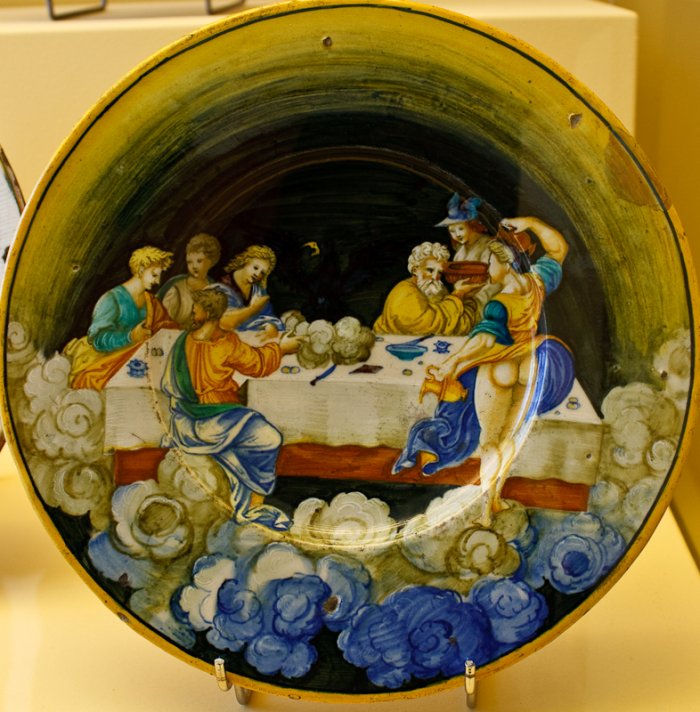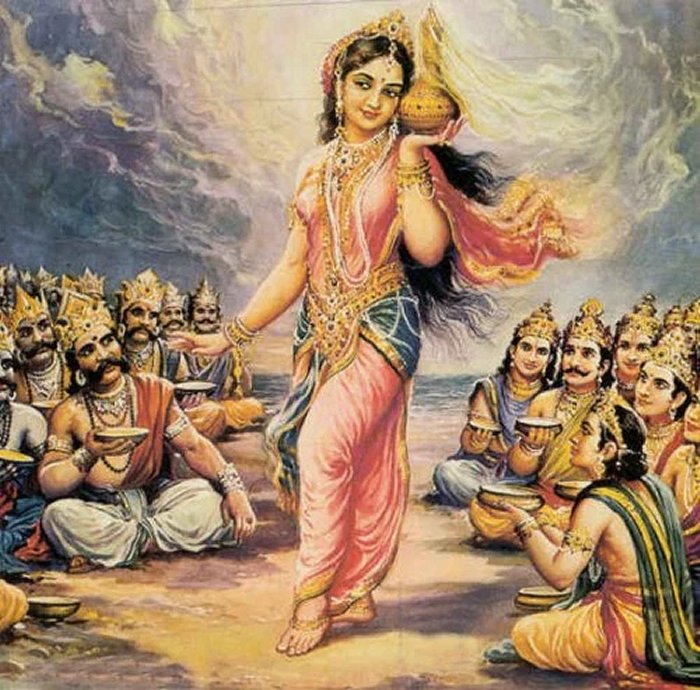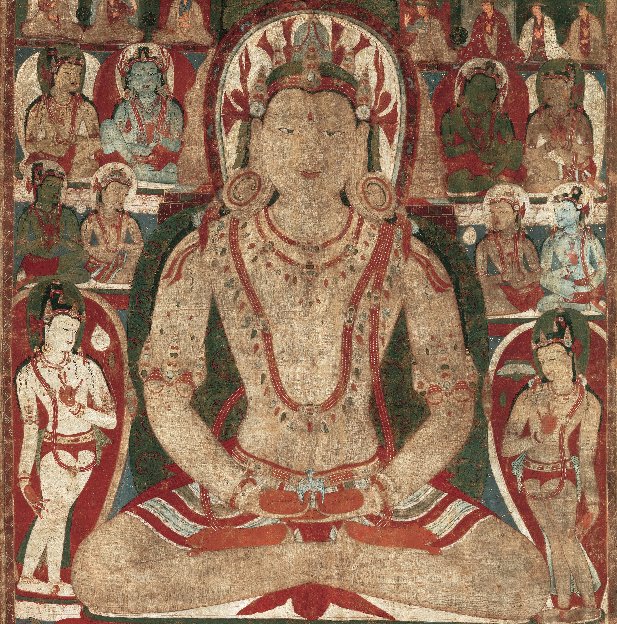Amrita: Potion Of Immortality Consumed By Gods To Make Them Strong And Immortal
A. Sutherland - AncientPages.com - For centuries, we have been dreaming of immortality, seeking a medicine that can help us to be immortal. Not only had the inhabitants of Mesopotamia associated immortality with treasures hidden underwater.
The Food of the Gods on Olympus (1530), majolica dish attributed to Nicola da Urbino. Image credit: MicheleLovesArt - Museum Boijmans Van Beuningen - CC BY-SA 2.0
According to Hindu myths and legends, the Indian Amrita ('non-dead), a drink of immortality with a sweet taste, was extracted from the bottom of the sea.
References to this miraculous nectar can be found not only in the Rig Veda, the oldest of Hinduism's sacred books, created for several centuries in the second millennium BC but also in Buddhist or Sikh literature.
The Amrita provided immortality and strength; it could also emanate new deities and ensure victory in the fight against demons, with which the gods had to fight to protect the divine drink.
Image source: Pinterest - Fair use
In hymns, the favorite beverage of Indra is probably identical to another magical juice – 'soma' (the drink of the devas) of the Vedic times. Soma may have been the forerunner to the idea of Amrita, but it is not known how the Vedic people extracted the soma juice. However, there are some clear indications to believe that it was an intoxicating substance used in the rituals by the Vedic priests to enter into a state of trances to communicate with gods and ancestors.
According to one theory, the Amrita was the basis for the later Greek concept of ambrosia ('ambrotos'), the food of the gods in Greek and Roman mythology, used to achieve immortality in the case of mortals.
Amrita was prepared from the plant juice of the same name. Consuming a drink with the addition of milk gave power (during certain rites) and allowed one to achieve transcendent visions and a feeling of unity with the gods.
Amrita – Recovered At The Churning Of The Ocean
According to the story, it was a time when the gods and antigods had to join their strength to churn the ocean of milk. It was necessary because the gods' most precious treasures were already long-lost beneath the primordial ocean due to the great deluge.
Amitayus is shown holding a jar containing the elixir of immortality, amrita, in his lap. source
These divine treasures include Amrita, the nectar of immortality. In the challenging process of churning the ocean, a huge mountain was used as a churning stick, and the divine snake Adishesha (or Vasuki, one of the King serpents of Hindu and Buddhist religion) was used as the rope around the stick.
Many things emerged from the Milk Ocean. Amrita also appeared, held in a cup by the divine physician Dhanvantari of the devas and an avatar of Lord Vishnu. The Amrita was in danger of being stolen by the antigods (asuras). To avoid it, the gods needed help from Vishnu, the Supreme Being and the "preserver" in the Hindu triad (Trimurti), in which Brahma and Shiva are also included.
Vishnu shapeshifted and became the charming maiden, Mohini, who successfully distracted the asuras. She changed the elixir for alcohol and returned the precious liquid to the gods.
Thus, the Amrita was secured only for the gods. However, one of the cunning demons, Rahu, disguised as a god, finally got a taste of the Amrita. The sun and the moon warned Vishnu, and the god immediately removed Rahu's head, but it happened too late. Rahu had already consumed some of the nectar to make him immortal.
Ever since, his head, known from myths as Rahu, and his corpse Ketu, became the most potent enemy of the Sun and Moon. Sun and Moon eclipses occur because Rahu and Ketu swallow up Sun and Moon when they come close.
Written by – A. Sutherland - AncientPages.com Senior Staff Writer
Updated on May 13, 20242
Copyright © AncientPages.com All rights reserved. This material may not be published, broadcast, rewritten or redistributed in whole or part without the express written permission of AncientPages.com
Expand for referencesReferences:
Cotterell, A. Mythology: An Encyclopedia of Gods and Legends from Ancient Greece and Rome, the Celts, and the Norselands
More From Ancient Pages
-
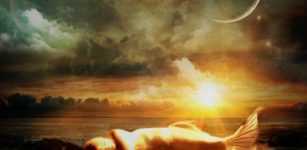 Native American Legend Of Apotamkin Teaches Children Obedience
Featured Stories | May 14, 2019
Native American Legend Of Apotamkin Teaches Children Obedience
Featured Stories | May 14, 2019 -
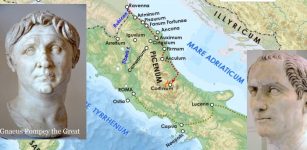 On This Day In History: Julius Caesar Defeated “Pompey The Great” At Pharsalus – On August 9, 48 BC
News | Aug 9, 2016
On This Day In History: Julius Caesar Defeated “Pompey The Great” At Pharsalus – On August 9, 48 BC
News | Aug 9, 2016 -
 Cynane: Talented Female Military Leader Assassinated While Giving A Speech
Featured Stories | Mar 5, 2019
Cynane: Talented Female Military Leader Assassinated While Giving A Speech
Featured Stories | Mar 5, 2019 -
 Strange Tales Of Loughareema – The Vanishing Lake Where People Are Lost
Featured Stories | Jan 8, 2022
Strange Tales Of Loughareema – The Vanishing Lake Where People Are Lost
Featured Stories | Jan 8, 2022 -
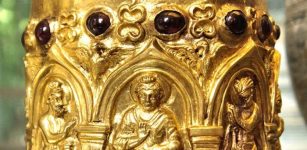 The Bimaran Casket – Rare Golden Artifact Found In Ancient Stupa
Artifacts | Dec 17, 2018
The Bimaran Casket – Rare Golden Artifact Found In Ancient Stupa
Artifacts | Dec 17, 2018 -
 Canaanite Wine Palace At Tel Kabri May Have Been Destroyed By Earthquake
Archaeology | Sep 15, 2020
Canaanite Wine Palace At Tel Kabri May Have Been Destroyed By Earthquake
Archaeology | Sep 15, 2020 -
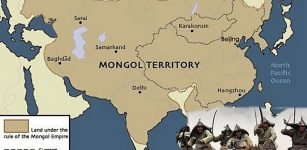 Pax Mongolica: Time Of Peace And Stability That Helped To Spread Technologies And Inventions
Ancient History Facts | Mar 28, 2016
Pax Mongolica: Time Of Peace And Stability That Helped To Spread Technologies And Inventions
Ancient History Facts | Mar 28, 2016 -
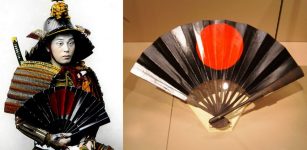 Innocent-Looking Japanese War Fan – Surprise Weapon Used By The Samurai And Female Ninja
Ancient History Facts | Mar 29, 2018
Innocent-Looking Japanese War Fan – Surprise Weapon Used By The Samurai And Female Ninja
Ancient History Facts | Mar 29, 2018 -
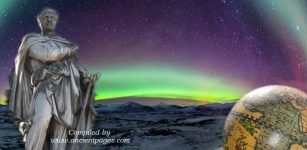 Pytheas’s Voyage To The Arctic In 325 B.C. And Account Of Thule, The Strange Land Beyond
Featured Stories | May 29, 2021
Pytheas’s Voyage To The Arctic In 325 B.C. And Account Of Thule, The Strange Land Beyond
Featured Stories | May 29, 2021 -
 Surprising Discovery In Valsgärde Viking Boat Graves – Scandinavian’s Oldest Down Bedding Found
Archaeology | Mar 27, 2021
Surprising Discovery In Valsgärde Viking Boat Graves – Scandinavian’s Oldest Down Bedding Found
Archaeology | Mar 27, 2021 -
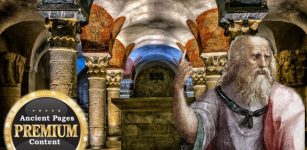 Riddle Of An Ancient Underground City No-One Thinks Exist – Have We Misunderstood Plato? Part 1
Ancient Mysteries | Sep 16, 2019
Riddle Of An Ancient Underground City No-One Thinks Exist – Have We Misunderstood Plato? Part 1
Ancient Mysteries | Sep 16, 2019 -
 Codex Washingtonianus Contains A Passage Not Seen In Any Other Biblical Manuscript
Artifacts | Aug 4, 2015
Codex Washingtonianus Contains A Passage Not Seen In Any Other Biblical Manuscript
Artifacts | Aug 4, 2015 -
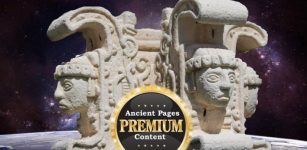 Mysterious Ancient Tomb Reveals ‘Impossible’ Cosmic Connection – Wrong Identity – Part 1
Ancient Mysteries | Oct 11, 2020
Mysterious Ancient Tomb Reveals ‘Impossible’ Cosmic Connection – Wrong Identity – Part 1
Ancient Mysteries | Oct 11, 2020 -
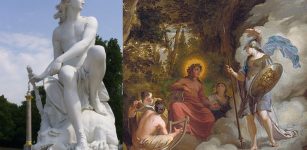 Apollo – Loved And Feared Greek God Of Divination And Prophecy Who Was Also Seer Of Zeus
Featured Stories | Feb 6, 2019
Apollo – Loved And Feared Greek God Of Divination And Prophecy Who Was Also Seer Of Zeus
Featured Stories | Feb 6, 2019 -
 Never-Before-Seen Object Found In The Skull Of Powerful Ancient Ruler Raises Many Questions
Featured Stories | Nov 12, 2024
Never-Before-Seen Object Found In The Skull Of Powerful Ancient Ruler Raises Many Questions
Featured Stories | Nov 12, 2024 -
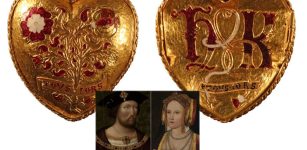 Beautiful Tudor Gold Pendant Linked To Henry VIII And Katherine Of Aragon Discovered By A Metal-Detectorist
Archaeology | Feb 1, 2023
Beautiful Tudor Gold Pendant Linked To Henry VIII And Katherine Of Aragon Discovered By A Metal-Detectorist
Archaeology | Feb 1, 2023 -
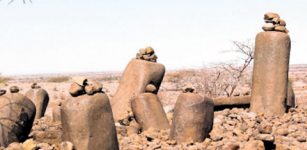 Namoratunga: ‘People Of Stone’ And Ancient Astronomical Observatory
Featured Stories | Jun 12, 2016
Namoratunga: ‘People Of Stone’ And Ancient Astronomical Observatory
Featured Stories | Jun 12, 2016 -
 How Neanderthal Language Differed From Modern Human – They Probably Didn’t Use Metaphors
Human Beginnings | May 21, 2024
How Neanderthal Language Differed From Modern Human – They Probably Didn’t Use Metaphors
Human Beginnings | May 21, 2024 -
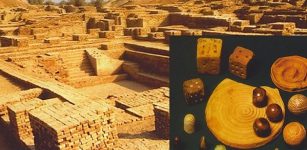 Mysterious Mohenjo Daro Was Home To An Unknown Advanced Civilization Far Ahead Of Its Time
Civilizations | Apr 2, 2014
Mysterious Mohenjo Daro Was Home To An Unknown Advanced Civilization Far Ahead Of Its Time
Civilizations | Apr 2, 2014 -
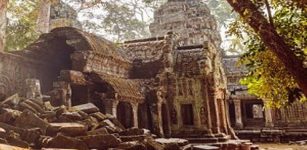 Ancient Assyrian Tomb With 10 Skeletons And Ceramic Sarcophagi Unearthed In Iraq
Archaeology | Apr 10, 2017
Ancient Assyrian Tomb With 10 Skeletons And Ceramic Sarcophagi Unearthed In Iraq
Archaeology | Apr 10, 2017

